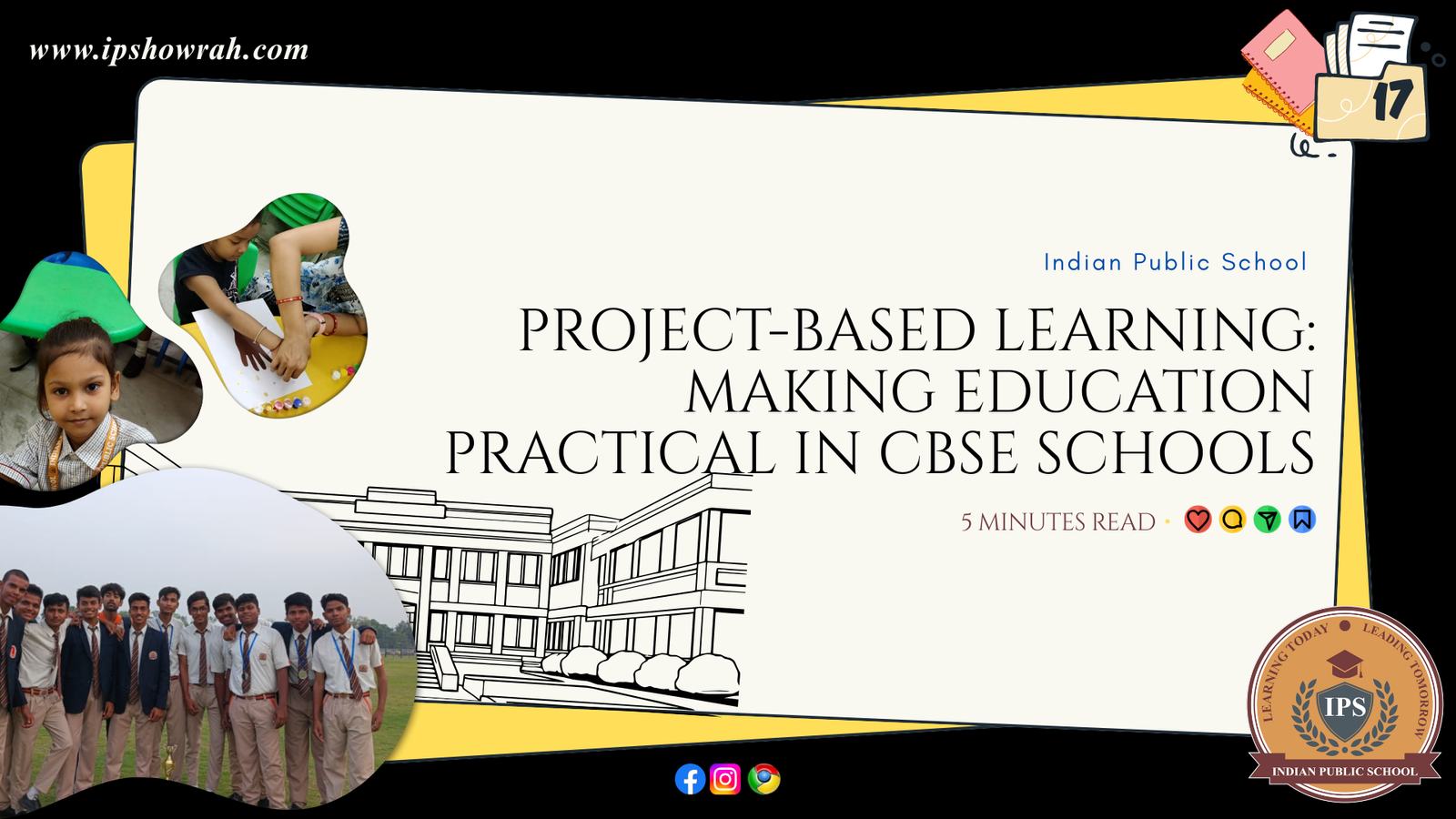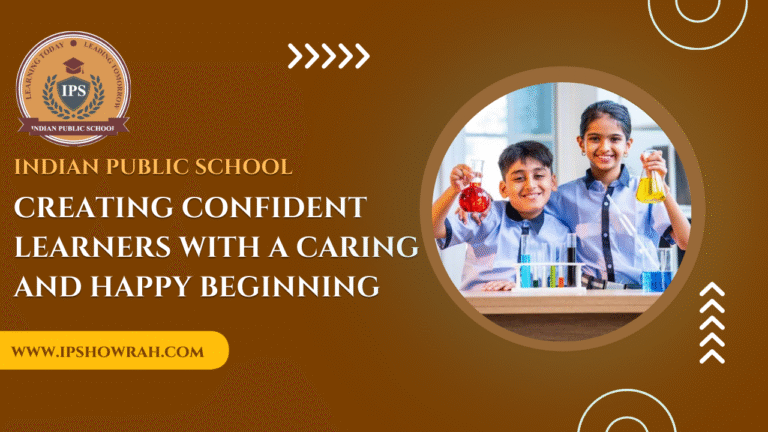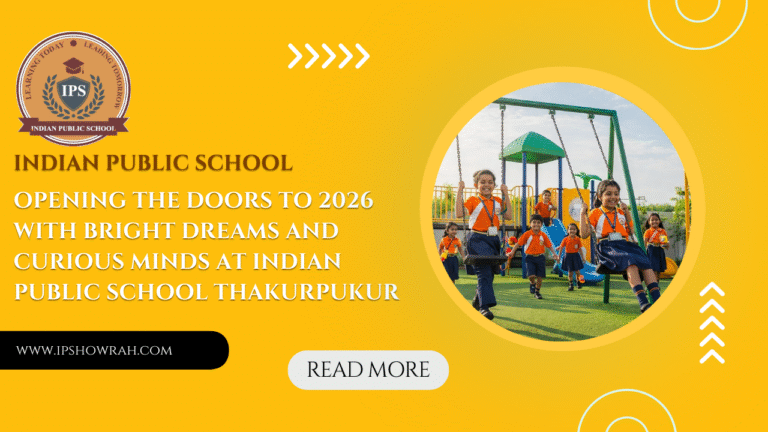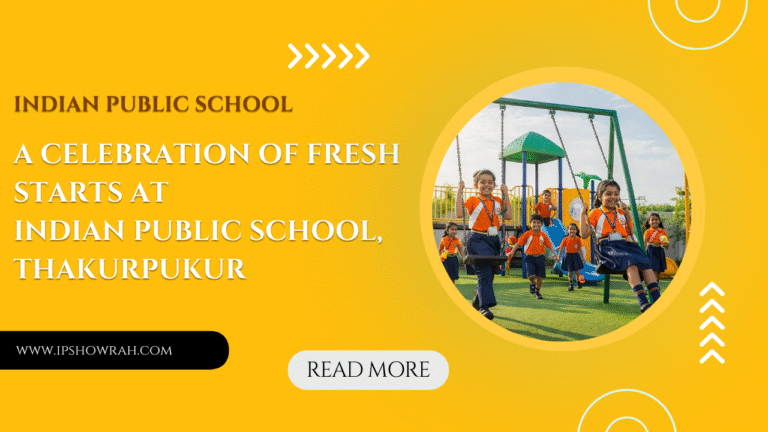Project-Based Learning: Making Education Practical in CBSE Schools

Project-based learning (PBL) is transforming how students in CBSE schools experience education. Instead of relying solely on textbooks and rote memorization, PBL encourages students to actively explore real-world problems, work collaboratively, and apply their knowledge in meaningful ways. Schools like Indian Public School, recognized as the best school in Howrah, are leading the way in making learning more engaging and practical through this innovative approach.
What is Project-Based Learning?
Project-based learning is an educational method where students gain knowledge and skills by working for an extended period to investigate and respond to authentic, engaging, and complex questions or challenges. Rather than passively absorbing information, students take charge of their learning by planning, researching, problem-solving, and presenting their findings.
Key Benefits of Project-Based Learning in CBSE Schools
1. Bridges Theory and Practice
PBL helps students connect what they learn in the classroom to real-life situations. For example, a science project on renewable energy might involve designing a solar-powered device, allowing students to understand energy concepts by building something tangible. This hands-on experience makes learning more memorable and meaningful.
2. Develops Critical Thinking and Problem-Solving Skills
Projects often require students to analyze information, make decisions, and find creative solutions. For instance, a social science project on climate change might have students research causes, analyze data, and propose solutions for their community. This process strengthens their ability to think critically and tackle complex issues.
3. Fosters Collaboration and Communication
Many projects are team-based, teaching students how to work with others, share ideas, and resolve conflicts. These skills are essential for success both in school and in future careers.
4. Encourages Independent and Lifelong Learning
PBL empowers students to take ownership of their education. They learn how to manage time, set goals, and seek out information independently—skills that help them become lifelong learners.
5. Boosts Engagement and Motivation
When students work on projects that interest them and see the real-world impact of their efforts, they become more motivated and enthusiastic about learning.
6. Prepares Students for Future Careers
Modern workplaces value skills like teamwork, adaptability, and creative problem-solving. Project-based learning helps students develop these abilities, making them better prepared for future challenges.
Examples of Successful Projects in CBSE Schools
1. Environmental Awareness Campaigns
Students track pollution levels in their neighborhood, collect data, and present solutions to reduce pollution. Such projects build environmental awareness and analytical skills.
2. School Garden Initiatives
Biology students plan, plant, and maintain a school garden. They learn about plant biology, teamwork, and responsibility while contributing to a greener campus.
3. STEM-Based Innovations
Students design eco-friendly models for sustainable energy solutions, such as wind turbines or solar-powered cars. These projects integrate science, technology, engineering, and mathematics, making learning multidisciplinary and practical.
4. Social Impact Projects
Learners create campaigns to address social issues like waste management or water conservation. By engaging with their community, students develop empathy, leadership, and communication skills.
5. Entrepreneurial Ventures
Senior students work in teams to develop business models, conduct market research, and present their ideas to a panel. This experience fosters financial literacy, creativity, and confidence.
The Impact of Project-Based Learning
Deeper Understanding and Retention
Students remember and understand concepts better when they apply them in real situations. Studies show that learning by doing leads to higher retention rates compared to traditional lectures.
Holistic Skill Development
PBL nurtures not just academic knowledge, but also social, emotional, and cognitive growth. Students become better communicators, collaborators, and problem-solvers.
Real-World Relevance
By addressing real-life challenges, students see the value of their education and are inspired to become active, responsible citizens.
How Indian Public School and the Best School in Howrah Lead with PBL
Indian Public School, widely regarded as the best school in Howrah, has fully embraced project-based learning. The school integrates PBL across subjects, ensuring that students experience hands-on learning from an early age. Teachers act as facilitators, guiding students as they explore, experiment, and present their projects.
- Collaborative Classrooms: Students work in groups, learning to value diverse perspectives.
- Innovation Labs: The school provides resources for students to experiment with technology and science.
- Community Projects: Learners engage with local issues, making a real difference in their surroundings.
- Showcase Events: Students present their projects to peers, parents, and community members, building confidence and communication skills.
Frequently Asked Questions (FAQs)
1. Why is project-based learning important in CBSE schools?
Project-based learning makes education practical, helps students connect theory to real life, and develops essential skills like critical thinking, teamwork, and creativity.
2. Can PBL improve academic performance?
Yes, students often achieve better understanding and retention of concepts, leading to improved academic results.
3. What are some examples of PBL in schools?
Examples include environmental campaigns, school gardens, STEM innovations, social impact projects, and entrepreneurial ventures.
4. How does Indian Public School use project-based learning?
Indian Public School integrates PBL across subjects, encourages innovation, and involves students in community projects, making it a leader among the best schools in Howrah.
5. What skills do students gain from PBL?
Students develop problem-solving, research, communication, teamwork, and leadership skills—preparing them for future success.
Conclusion
Project-based learning is revolutionizing education in CBSE schools by making learning active, engaging, and relevant. Schools like Indian Public School, the best school in Howrah, are at the forefront of this movement, preparing students not just for exams, but for life. By embracing PBL, students become confident, creative, and capable individuals ready to make a positive impact on the world.
Important Note
This blog is for educational purposes and aims to help students and parents understand the latest CBSE syllabus updates. For more information, visit the official CBSE website or contact Indian Public School, Howrah. Have a great day.



